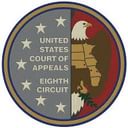
Damien Echols
Larry D. Moore, CC BY 4.0, Wikimedia Commons.
On April 18, 2024, the Arkansas Supreme Court decided 4 – 3 to reverse a 2022 lower court decision and allow genetic testing of crime scene evidence from the 1993 killing of three eight-year-old boys in West Memphis. The three men convicted in 1994 for the killings were released in 2011 after taking an Alford plea, in which they maintained their innocence but plead guilty to the crime, in exchange for 18 years’ time served and 10 years of a suspended sentence.
“This is monumental,” said Damien Echols (pictured), the only man originally sentenced to death for the crime and the defendant seeking the additional testing. “We appreciate the [Arkansas Supreme Court] giving this ruling and hope we can now once and for all solve this case, clear our names and find the person responsible for carrying out these horrendous crimes,” he said in a statement.
In the majority opinion, Justice Karen Baker wrote: “It is undisputed that Echols has been convicted of a crime, and as a result, he is entitled to seek relief pursuant to Act 1780.” Crittenden County Circuit Judge Tonya Alexander had previously denied Mr. Echols’ request for additional testing in 2022, interpreting state law to require defendants to be incarcerated at the time of a new DNA testing request.
Stephen Braga, lead defense counsel, expressed support for the recent ruling “upholding the plain language of the statute,” and explained to CNN that this “opens up the possibility that key evidence in the case can now be tested with the most advanced technology possible.” However, attorney General Tim Griffin, whose office argued the case, expressed his disappointment, stating the new ruling “undermines finality in long-closed criminal cases and will result in unserious filings,” and encouraged the legislature to clarify the law. Justice Barbara Webb shared similar sentiments in her dissenting opinion, writing that the ruling “obliterates any sense of finality in our criminal justice system.” She explained, “Their interpretation of Act 1780 means anyone who has ever been convicted of a crime — whether or not they be in State custody — can seek DNA or other scientific testing even if such testing would not prove that individual’s innocence.”
Specifically, the defense team seeks to use new technology, known as the M‑Vac wet vacuum system, to carry out additional DNA testing on the victims’ shoelaces that were used to tie their own arms and legs together, as well as additional items of clothing. In 2020, defense counsel had reached an agreement with then-prosecuting attorney Scott Ellington to conduct such testing. But in 2021, Keith Chrestman, who replaced Mr. Ellington as prosecutor, directed Mr. Echols’ team to petition the court for permission.
ANDREW DEMILLO, Arkansas Supreme Court says new DNA testing can be sought in ‘West Memphis 3′ case, Associated Press, April 18, 2024; Judge rejects new evidence testing in ‘West Memphis 3′ case, Associated Press, June 23, 2022; Lara Farrar, Arkansas judge denies Damien Echols’ request to conduct new DNA tests on West Memphis Three evidence, Arkansas Democrat Gazette, June 23, 2022; Matt Campbell, State Supreme Court says Damien Echols can seek further DNA testing in West Memphis Three case, Arkansas Times, April 18, 2024; Alaa Elassar and Kara Nelson, New DNA testing can be requested by ‘West Memphis 3’ case defendant Damien Echols, Arkansas Supreme Court rules, CNN, April 19, 2024;



